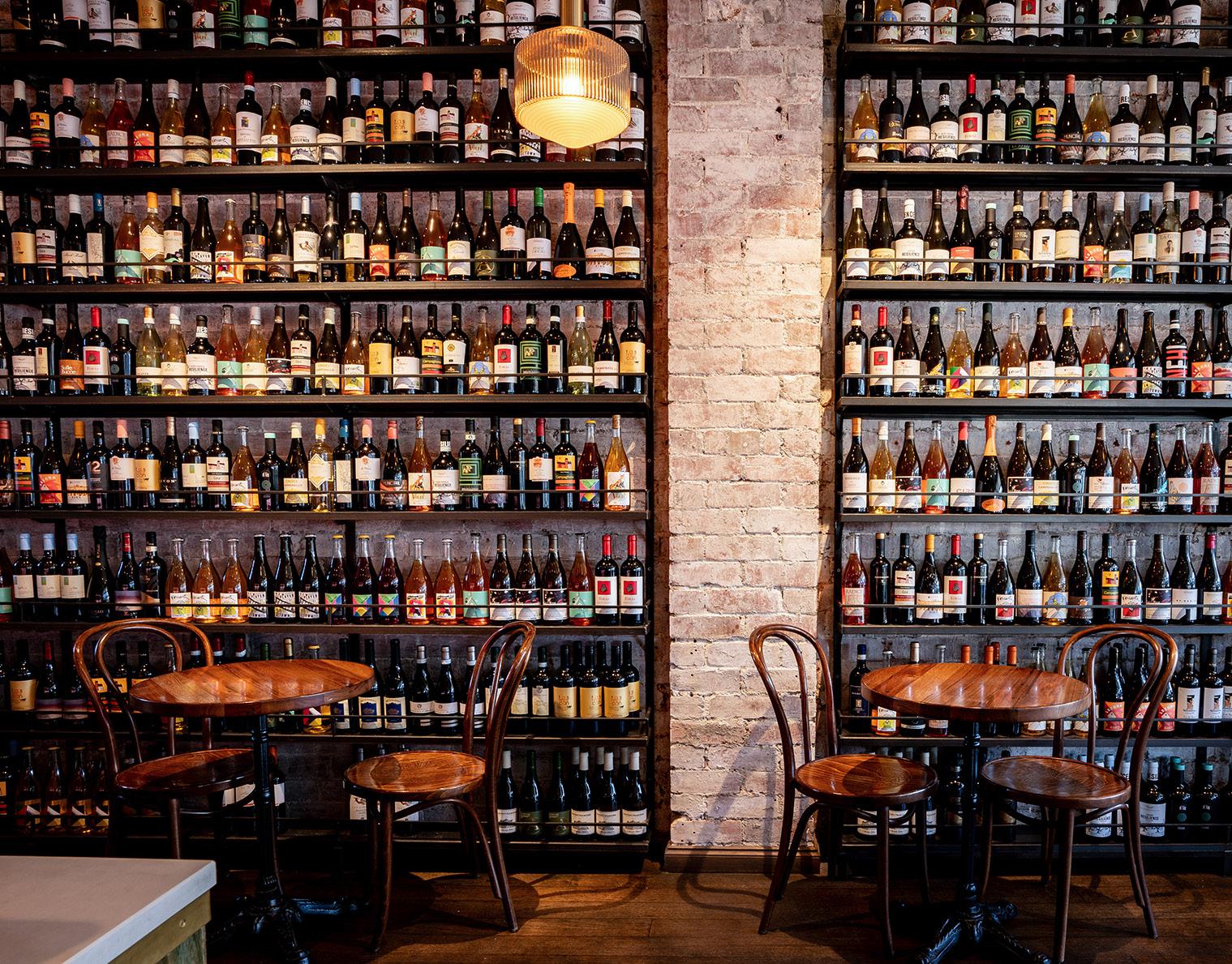
8 minute read
FEATURE: START OF YEAR STRATEGIES
Annual ambition
Café and restaurant owners share their marketing, expansion, and innovation plans for 2025.
-WORDS Laura Box
PHOTOGRAPHY Armelle Habib and Abigail Varney for Market Lane; Kate Shanasy for Reed House; HiSylvia for OGI.
THERE’S A SENSE of optimism in the air as we enter the New Year; inflation will slow, interest rates will lower — or at least continue to stagnate — and consumers will have the confidence to increase their patronage of restaurants, cafés, and bars. Nevertheless, the early months of the year are notoriously unpredictable for the industry, but they do provide a window for business owners to strategise for the coming year.

In Melbourne, Market Lane Coffee Co-Owner Fleur Studd, Reed House Co-Owners Rebecca Baker and Mark Hannell, and Officina Gastronomica Italia Owner Claudio Casoni are gearing up for 2025. They talk marketing plans, sustainable growth, staffing, and maintaining relevance in an evercompetitive industry.
Setting up shop
Rebecca Baker and Mark Hannell from Reed House are relative newcomers to the owner–operator scene. The pair opened their first Melbourne restaurant in late-2024, with Hannell heading up the kitchen and Baker leading the front-of-house team. After a strong start, the pair are now surveying what’s working for them, what new business owners should be thinking about, and what their goals are for 2025.
Baker met Hannell while working at Ottolenghi restaurant Nopi during a stint in London. The couple moved to Australia a few years later, working in Melbourne and then Byron Bay. Eventually, they decided to return to Melbourne and set up a restaurant together.
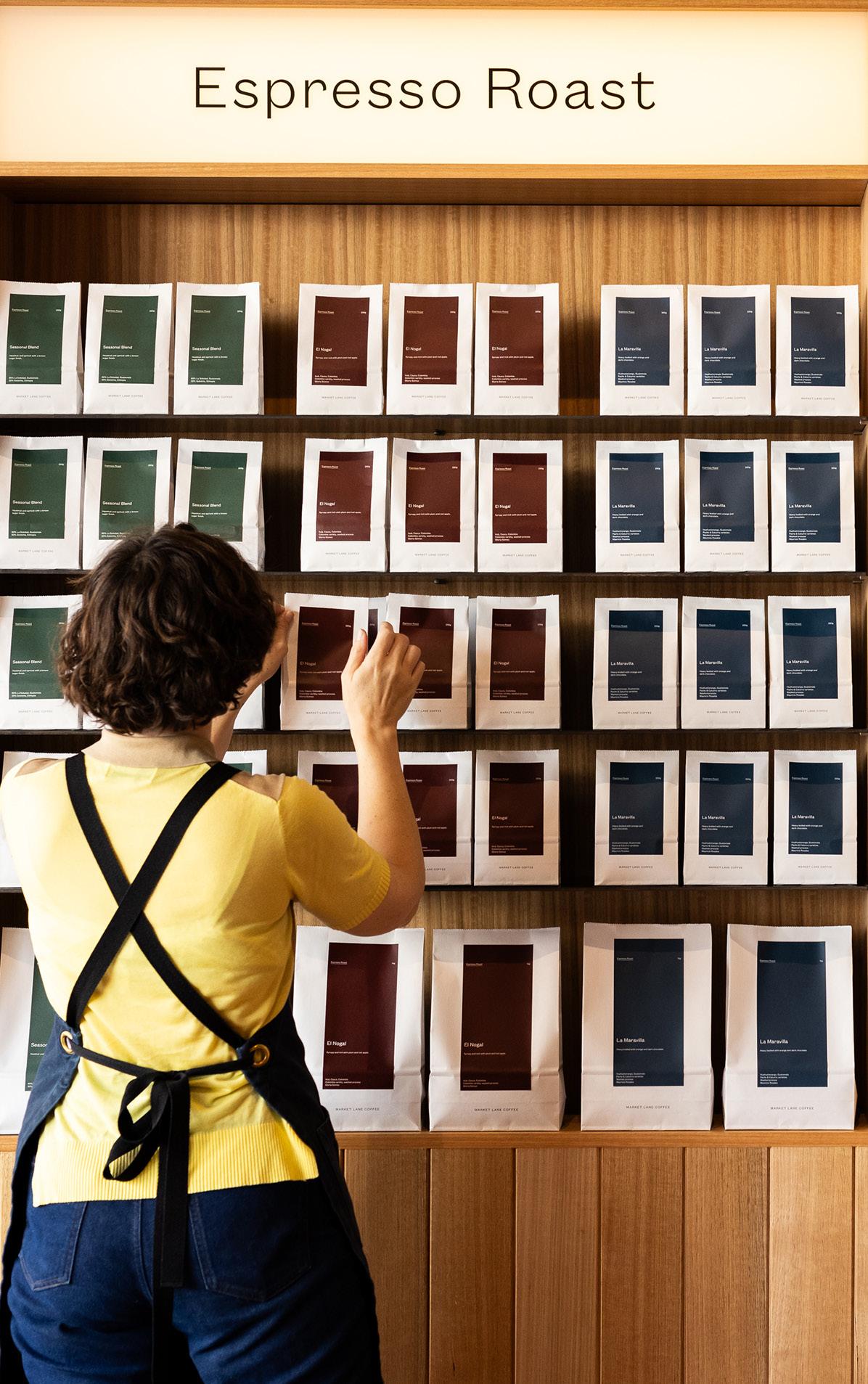
“Our business partner [Michael Bascetta] told us about Reed House,” says Baker. “We were like, ‘If they’ll have us, this is the one we want.’ And it went from there.”
The couple have been in the industry for around 15 years, and Hannell says their combined experience in management positions has allowed them to build up their industry knowledge. “Day-to-day running and procedures weren’t a huge surprise to us because we’ve been in management for a good portion of our careers,” says Baker.
“But there were a lot of hidden costs we didn’t really think about,” adds Hannell. “Even the big term deposit for opening. We didn’t know what a term deposit was.”
“We were exceedingly naïve,” laughs Baker.
Understanding the back end of financials and managing cashflow proved to be a learning curve. “You don’t get to do that when you’re managing somebody else’s business in the same way as when it’s yours,” says Baker. For new owners, Baker shares some advice: “Any time you can spend educating yourself on the financial side of things, whether it’s just figuring out how Xero works... will save you a lot of time and pain in the future.”
Looking ahead, only well-structured and effectively managed businesses will be able to thrive in this evolving landscape.
-Claudio Casoni
In a city like Melbourne, there’s both quality and quantity when it comes to restaurants, meaning establishing a niche is crucial. For Reed House, the venue itself dictated its future. The bluestone heritage building dates back to 1859 and was used as a minister’s residence and a boarding house. Influenced by the building, the owners established a contemporary Australia restaurant inspired by British brasseries. Ensuring the venue’s authenticity has also contributed to its unique personality. “Becs and I don’t hide who we are,” says Hannell. “We’ve got rock music on, and you might come in and hear The Clash or Queens of the Stone Age playing. We want to make staff feel comfortable and don’t want anyone to hide their quirks.”

“We’re not built for stiff-style service, and it wouldn’t feel authentic if we tried,” adds Baker. Hannell says they’re planning to build up the venue’s events portfolio as well as collaborate with other restaurants, chefs, and winemakers. “We have a private dining room upstairs, so utilising that will be key for revenue, especially for end-of-financial-year parties. It’s something we’re going to put a bit of cash into and develop a nice offering,” says Hannell. “We also want to plug in the time and energy to getting guest chefs and winemakers to do pop-ups.”
Hiring strategies will continue on as per usual, with the management team sticking with processes they know work well. “We actively invest in people with experience,” says Baker. “We wanted to build a strong starting team. It was a small core unit, but we wanted to spend the money on people with experience, which helped us when we first opened.”
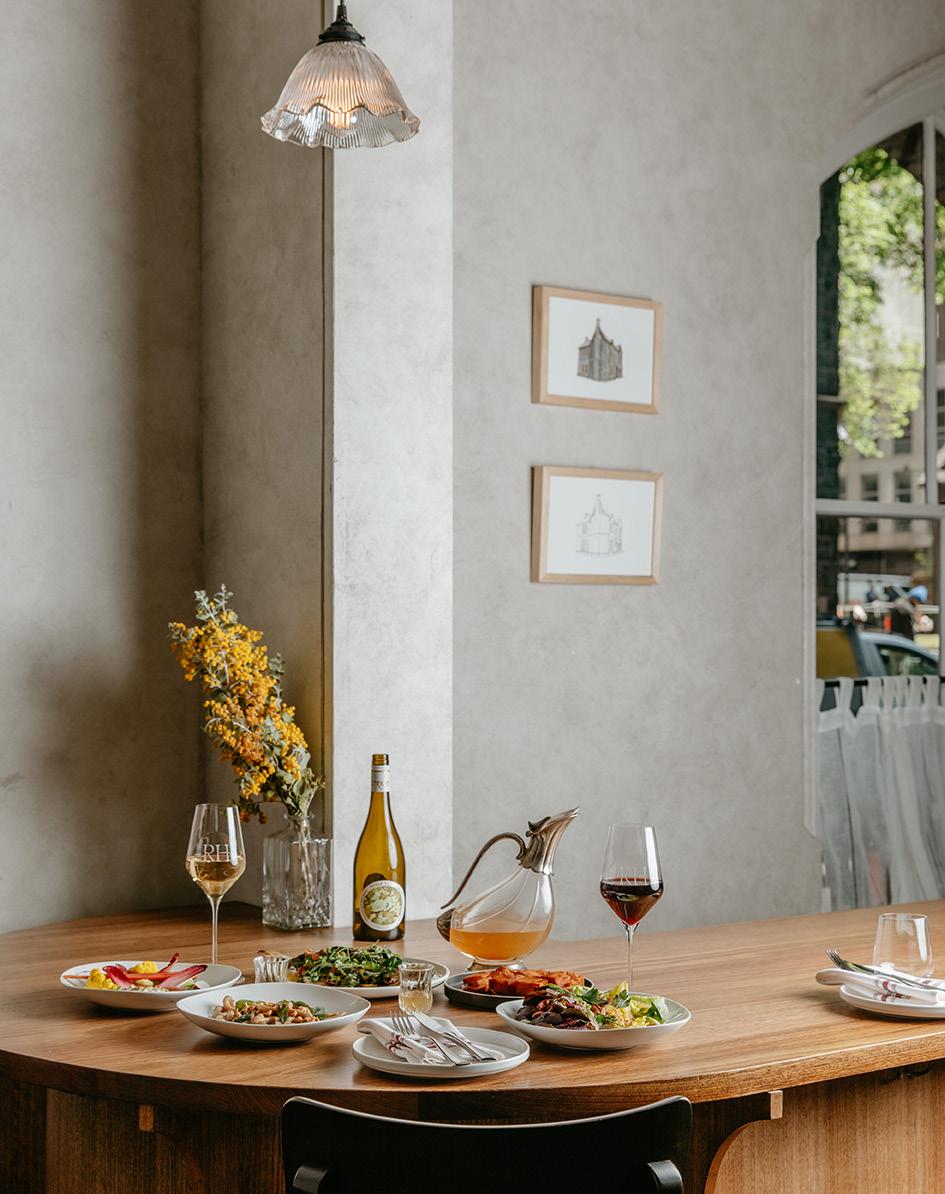
Apart from the loss of one kitchenhand and one chef who took a head chef role elsewhere, the core opening group remains at Reed House. “We’re proud of having a team that’s bonded together, it’s really cool for us,” says Hannell. Continuing to invest in employees is a major priority for the duo. “Not only does it help retain staff, but it builds their base knowledge, which in turn develops the knowledge of all staff and makes the venue stronger,” says Hannell. “That’s the game plan for this year.”
While January can be a quiet period, it provides an opportunity to slow down and make sure procedures are firmly in place. “We haven’t had a lot of time to actually do that yet, so this is the time where we get to make sure everything is built,” says Baker.
Growth and relevance
2025 marks 16 years since Fleur Studd, Jason Scheltus, and Jenni Bryant opened the doors to the first Market Lane store in Melbourne. Over the last decade and a half, Market Lane has slowly but steadily expanded to 10 locations. The management team shares the belief that growth must be deliberate and considered for it to be sustainable. “Market Lane’s growth has been very organic,” says Studd. “We have gradually opened new locations in our favourite pockets of Melbourne/Naarm when the neighbourhood and community have felt right, and crucially, when the timing has been right. We have never overtly chased growth, or grown for growth’s sake, but one of the benefits of expanding has been creating opportunities for our wonderful team and having the resources to invest time and effort into things that we care about like sustainability, our people, and culture.”
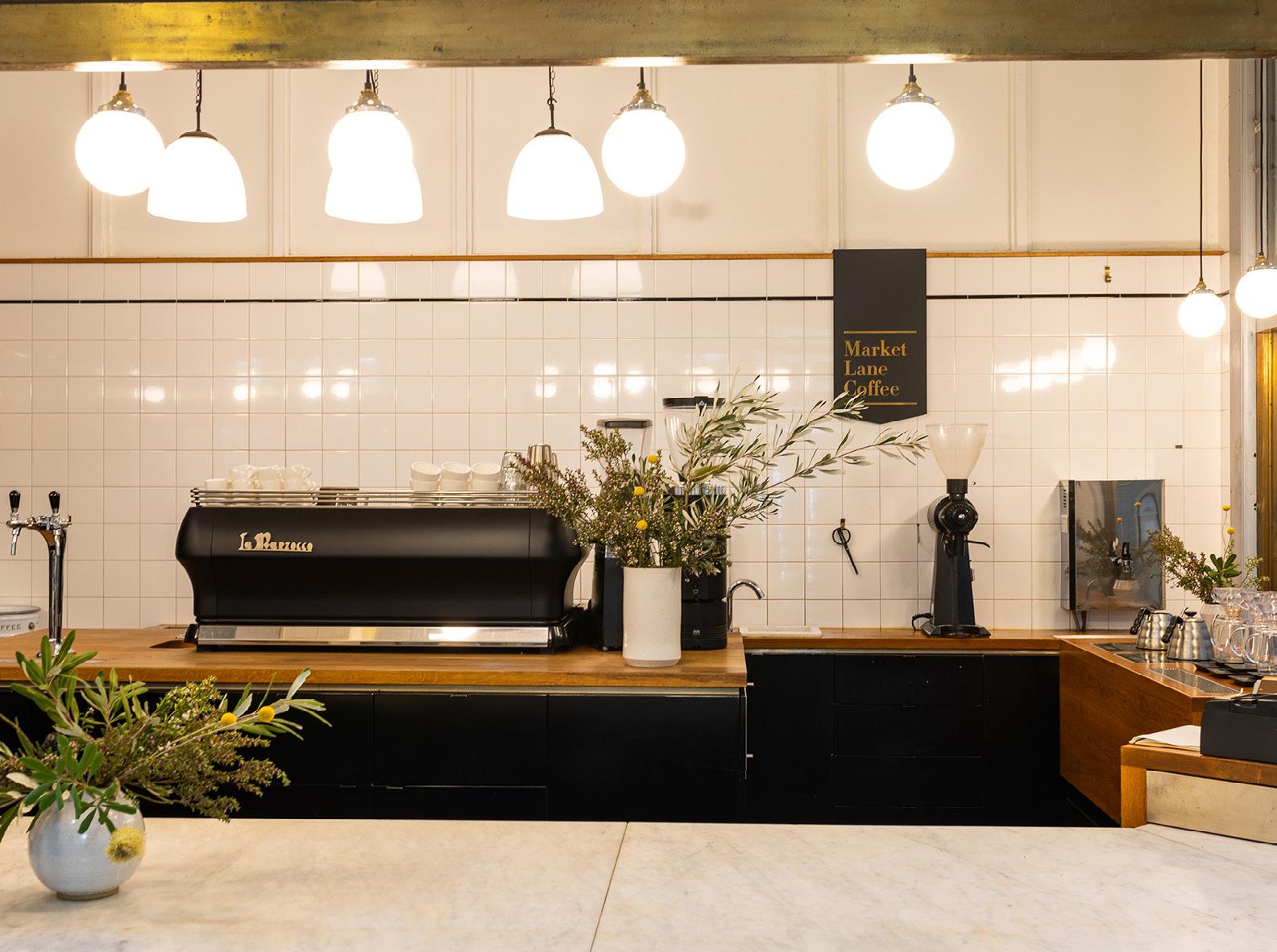
Studd points out that it’s important to spend time recalibrating and ensuring the correct structures and resources are in place to support a new location’s team. For smaller businesses looking to expand, Studd keeps it simple. “Do it for the right reasons,” she says. “Be clear about what you are wanting to achieve, and what you are willing to compromise or not compromise on.”
For older businesses looking to maintain relevance, Studd says it’s important to stick with core values when making difficult decisions. “We are committed to using business for good, celebrating great coffee, and helping our communities flourish. Our values have informed how we buy coffee, the people we work with, and how we do business. I think the magic of staying relevant lies in being clear about what you want to achieve.”
Optimising operations
Owner of Officina Gastronomica Italiana (OGI) Claudio Casoni is ensuring his restaurant continues to push ahead. “Our primary goal for 2025 is to protect profitability by optimising operations, maintaining quality, and adapting to market conditions,” he says. The restaurant opened in spring 2023, offering guests an authentic Italian experience that puts “good old-fashioned hospitality” front and centre.
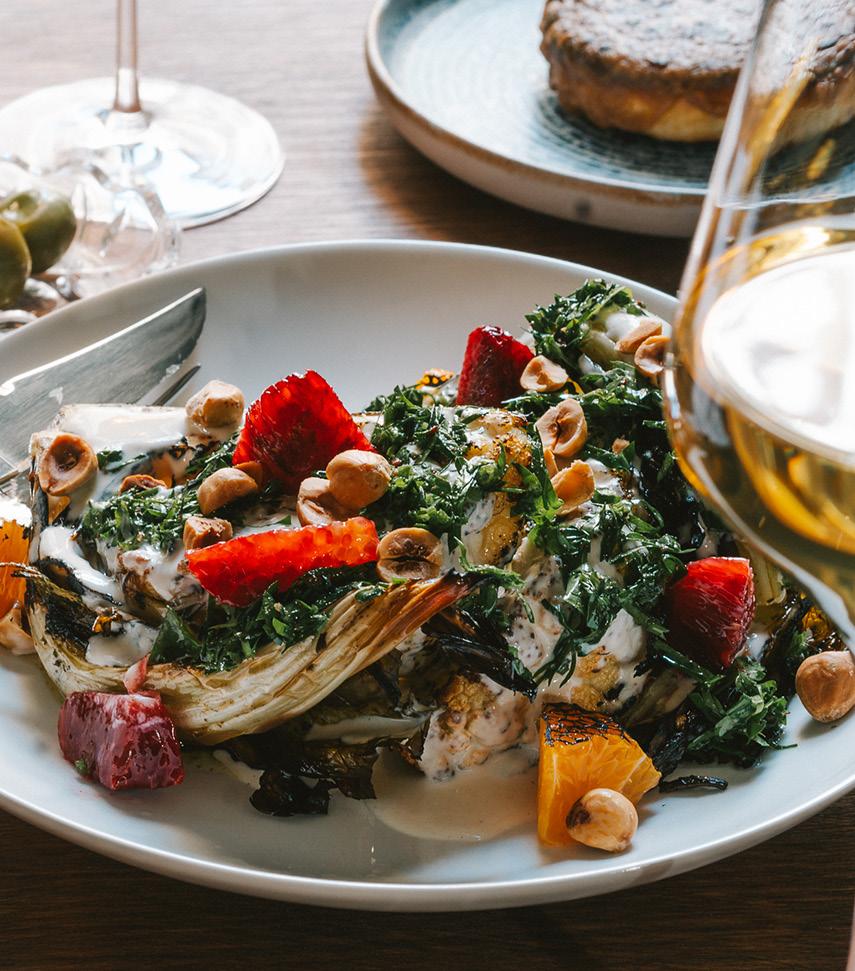
In 2024, Casoni focused on reviewing and enhancing training tools for waitstaff, aiming to increase average spend per table. “The results have been encouraging, with clear improvements in both sales and customer satisfaction,” says Casoni. Gift vouchers were a key sales driver for OGI and proved effective in increasing purchases and attracting new customers. Looking forward, Casoni says he plans to begin investing in email marketing to further connect with his audience, deliver personalised offers, and encourage repeat business. He predicts that curated special nights, such as themed dinners or exclusive tastings, will continue to gain popularity “as customers seek unique dining experiences”.
The magic of staying relevant lies in being clear about what you want to achieve and not compromising on your core values.
-Fleur Studd
Staff training is a big priority at the start of each year and provides time for employees to upskill. “Training is more critical than ever due to the general lack of skills, particularly in communication, among staff,” he says. “However, retaining good workers is becoming easier as the labour market has begun to stabilise and recalibrate.” Management also use this period to conduct operational reviews. “It’s a valuable time to strategise and prepare for busier months ahead,” says Casoni.
The operator recognises the past year has provided obstacles for the industry to overcome. “We face significant challenges, including post-pandemic inflation on supplies and speculative price hikes in the building industry,” he says. To continue running his business sustainably, Casoni is honing in on managing costs and prioritising investments. “The hospitality industry has become increasingly challenging over the past three years. Looking ahead, only well-structured and effectively managed businesses will be able to thrive in this evolving landscape.”
A set of shared values connect the operations of Reed House, Market Lane, and Officina Gastronomica Italiana. As we get further into 2025, it’s evident that success for these businesses is as reliant on staff training, collaborations, and trial and error as it is on authenticity and sticking to core values.





